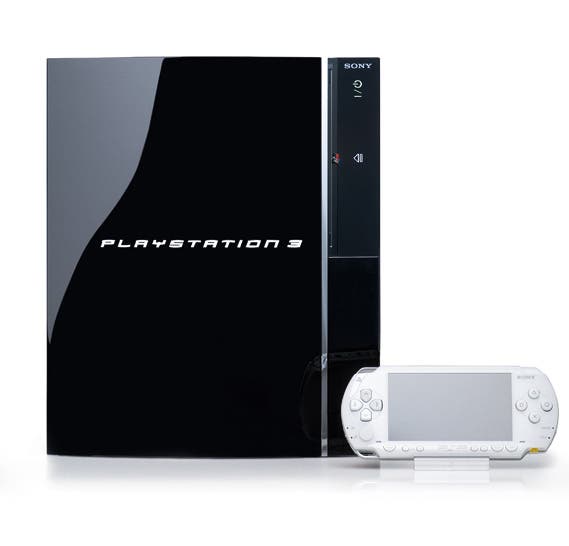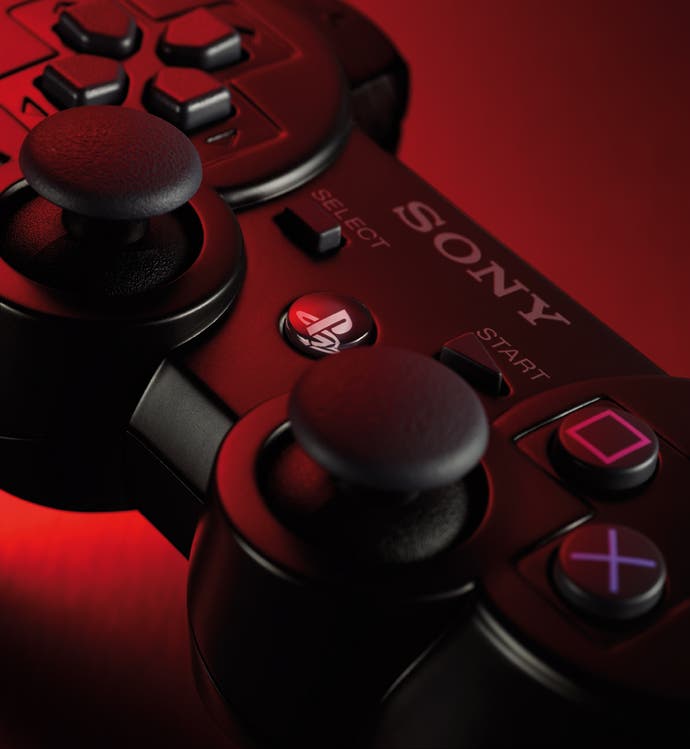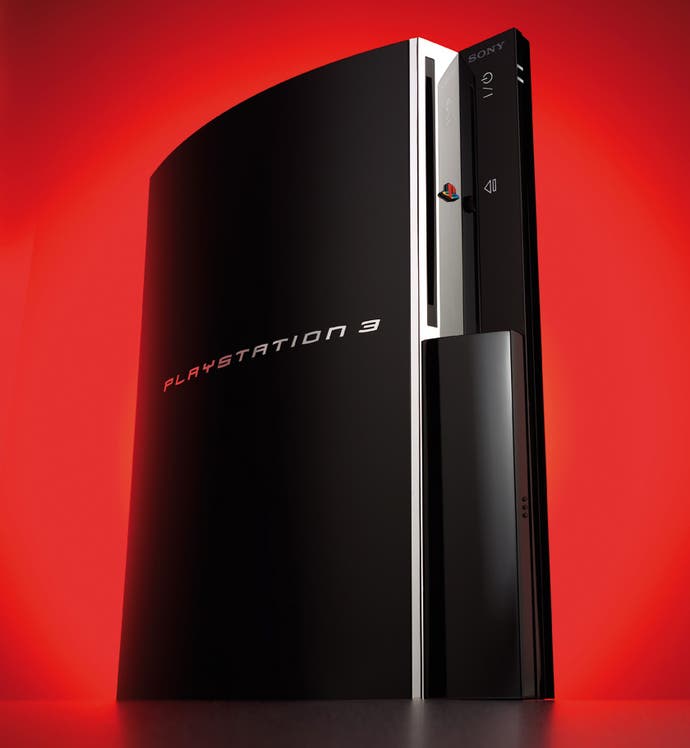GamesIndustry.biz: Hearts and minds
Johnny argues the PS3 delay's no disaster, but Sony needs to make friends.
Xbox Europe boss Chris Lewis will surely have cracked a smile this morning as he, along with the rest of the world, awoke to the news that Sony has been forced into ordering a humiliating delay of PlayStation 3 in Europe. He perhaps even allowed himself a hearty chuckle.
For when Microsoft embarked upon its audacious global next-generation crusade with Xbox 360 it could scarcely have hoped, nine months after launch, to be in the lofty comfort zone it finds itself in today in Europe.
Acutely aware of the importance of being first to market, Microsoft smashed the traditional hardware launch model in a back-breaking effort to ship to the US, Japan and Europe near-simultaneously. And in the face of intense skepticism it pulled it off. Just.
Last year's launch of Xbox 360 was far from perfect, as any number of shortage-ravaged retailers or empty-handed gamers would have testified. But it launched on time and thus immediately reset consumer and trade expectations of a hardware launch; and, significantly, gave Europe hope that it would no longer be treated as the second-class citizen of the gaming world. For once, the rhetoric rang true.
And 360's unprecedented worldwide roll-out came, lest we forget, hot on the heels of Sony's own clumsily delayed European PSP launch. That Microsoft had therefore changed the rules of engagement became abundantly clear earlier this year as both Nintendo and Sony quickly fell into line, promising grand, effectively copycat, global launch initiatives for Wii and PlayStation 3.
The point of no return

But Sony went further. And under intense pressure to spell out its next-gen strategy as Microsoft stoked the rhetorical fires with a bullish pledge of 10 million 360s shipped before the arrival of PS3, SCEA boss Kaz Hirai took the extraordinary step of apparently setting in stone the exact date the system would hit all territories. As a PR exercise, it represented a chest-beating statement of intent without precedent in the industry. Despite the comprehensive failure to hit targets with PSP, with PlayStation 3 Sony wished the world to know anything Microsoft can do, it can do better.
These words have, this morning, come back to haunt the Japanese giant. As the Greeks had it, first hubris, then nemesis. But suggestions flooding forums today of this signalling Sony's demise in Europe are absurdly premature, of course. There does, however, seem little question that Sony's status, reputation and perceived ability to deliver on its promises have all been damaged by the announcement.
But what does all this mean in real terms for Europe? Microsoft might smirk but relief is likely to be the overriding emotion as the US firm escapes what was sure to be a bloody scrap this holiday season. Nintendo, too, will be encouraged by the news, although its Wii system is very much ploughing its own furrow in the market leaving Xbox 360 the obvious beneficiary in PS3's absence. As Wilde's Lady Bracknell might have observed, to lose one Christmas may be regarded as a misfortune; to lose two seems like carelessness.
Having dominated the gaming landscape for well over a decade, industry leadership has always been Sony's to lose. And when your opponent is Microsoft, every mistake, every PR blunder, every fresh delay will be seized upon and exploited with ruthless efficiency.
History lessons

By default it's advantage Microsoft in Europe this Christmas. But if PSP's initial performance is anything to go by, there's no reason to expect anything other than a massive launch for PS3 next March, notwithstanding the delay. Though months late, the handheld smashed all records to become the fastest-selling console in European history by a distance. And despite the obvious frustration caused by the slippage, SCEE was able to turn this to its advantage by offering by far the strongest launch proposition of any territory.
SCEE, now working to the new March 2007 timeframe, will be banking on finding itself in a similar position with PS3, with a far more substantial software line-up than the US and Japanese launches, and a convincing, worthwhile shipment of units to make it a meaningful launch and to hit the ground running. That is eminently achievable.
SCEE can also take some comfort from the fact that it is clearly better placed to absorb the negative impact of a delay than Microsoft was last year. While Xbox was unceremoniously dumped as soon as 360 arrived, PlayStation 2 will remain a major part of Sony's business for years to come, especially in emerging markets, and PSP is very much a key focus. SCEE's marketing machine must now swing into action and divert some of the considerable sums set aside for PS3 into pimping its existing platforms this Christmas. Hardly an ideal situation, but a long way from being a disaster.
Retail is also unlikely to suffer as result of PS3's tardiness, beyond the inevitable disappointment and frustration caused to customers. With 360 gaining momentum, Wii set to launch and PSP, DS and PS2 going strong (including new SKUs of each) there are plenty of attractive alternatives for consumers and plenty of money to be made - with the added bonus of a welcome boost when PlayStation 3 does eventually hit in the spring.
Grey expectations

A murkier issue that now arises is that of importing. SCEE made many enemies amongst the retail community with its zero-tolerance clamp-down on PSP grey importing last year, which resulting in legal proceeding being launched against several small vendors. While SCEE felt it had every right to protect the official launch, retailers not unreasonably argued that they wouldn't need to resort to this had Sony launched PSP when it said it would.
A global launch and, in the UK, proposed GBP 150 pre-order scheme were meant to eliminate both the associated problems of importing and the shameless grasping of eBay opportunists. Worryingly, with PS3 set to be region-free for software, today's announcement sets the stage for another potentially explosive and wholly unwelcome stand-off between SCEE and the retail community.
An uphill struggle
The challenge for PlayStation 3 is less in the long-term, and any considered assessment of the next-generation at this stage should still conclude that Sony is likely to retain its market leadership as the cycle matures.
But the extent of the Japanese firm's hegemony remains highly vulnerable and Sony, already playing catch up with its arch-rival in the console space, already fighting an expensive format war with its Blu-ray next-generation DVD technology, already being criticised by top publishers for its PSP strategy, already lambasted in blogs and forums for its public shows and no-shows, just made its life in the short-term far more uncomfortable.
It is the battle to win hearts and minds that Sony is losing right now. Losing with gamers who still fail to appreciate why they are being forced to adopt Blu-ray; losing with the press following a poor E3 and telling no-show in Leipzig; losing with retail frustrated by the lack of communication and now a delay, with the spectre of importing now looming on the horizon; losing with Europe which has very clearly been sidelined yet again so Sony can effectively pursue its next-gen DVD war on US soil.
But it is well within Sony's power to turn this situation around. PlayStation 3 will, after all, be an incredible system and a success with amazing game experiences and the full support of the publishing community. And as a mainstream, mass-market brand, the reach of PlayStation remains peerless in its sector. It's easy to forget such jarringly obvious points in the present tumult; but a large part of the blame for that lies with Sony. And if it is to wipe the smile from the face of Microsoft execs, the charm offensive must start now.








